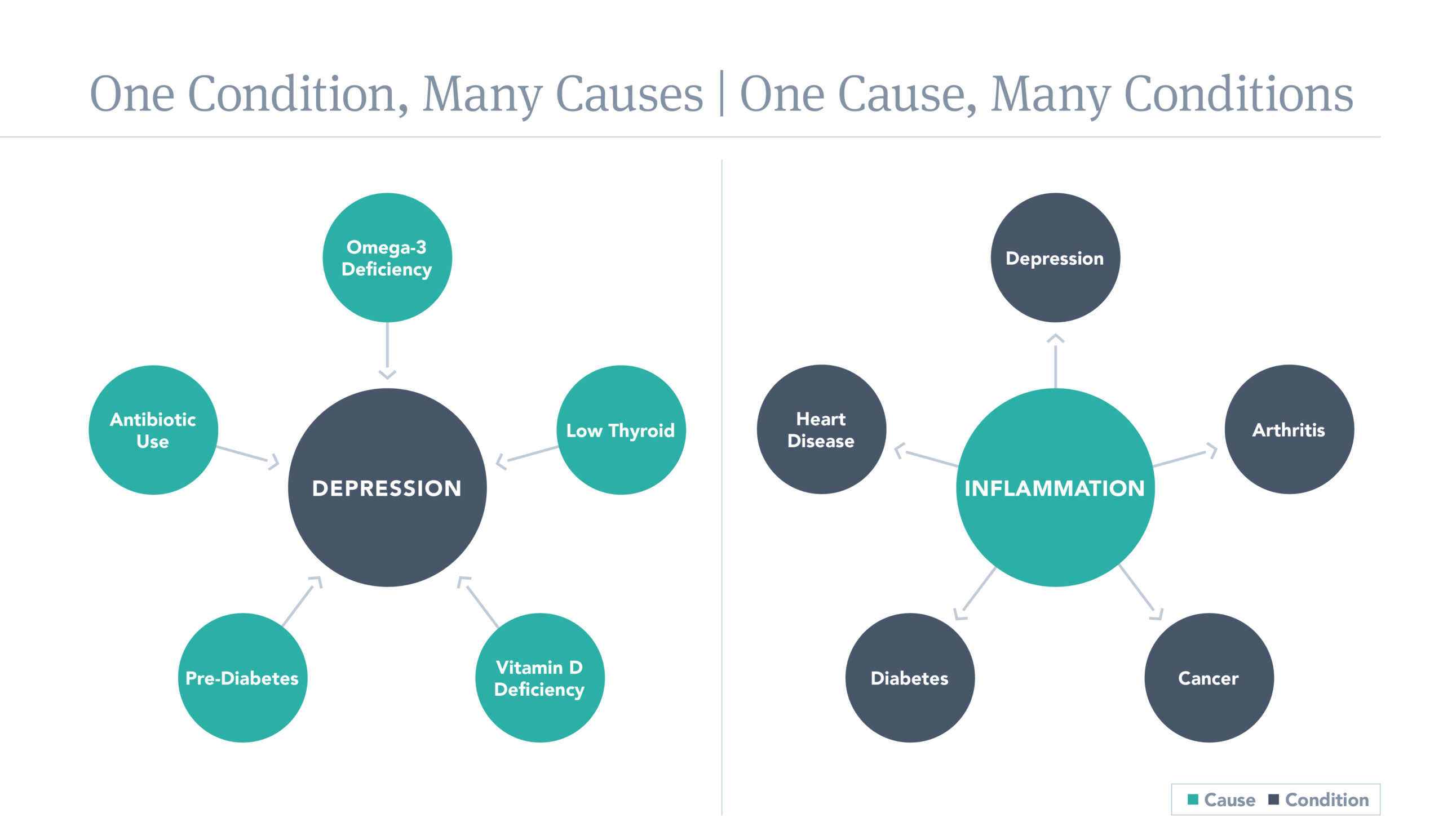
It’s not the most conventional path to healing, but research shows that functional medicine for chronic illness can help you get to the root cause of the problem. Functional medicine is a type of healthcare that focuses on the whole person and factors such as antecedents, mediators and triggers that have led you to where you are today, which is why it can help to create the conditions for your body to heal naturally. From chronic pain to autoimmune diseases, infertility to skin disorders, IBS to migraines, functional medicine can often provide more lasting relief for your unique set of symptoms than traditional medical treatments.
What is Functional Medicine?
Functional medicine is a branch of medicine that focuses on the function of the body’s systems, rather than on the treatment of disease. It is based on the belief that the body has an innate ability to heal itself, and that by supporting this ability, we can maintain health and prevent disease.
Functional medicine practitioners use a variety of tools to support the body’s natural healing process. These may include dietary changes, supplements, exercise, and stress reduction. Functional medicine is often used in conjunction with traditional medicine, and may be recommended for people who have chronic or difficult-to-treat conditions.
How Functional Medicine Works
Functional medicine is a type of healthcare that focuses on identifying and treating the root cause of illness, rather than simply treating symptoms. This approach looks at the whole person, not just their symptoms. It also takes into account a person’s environment, lifestyle, and genetic factors.
Functional medicine practitioners use a variety of tools to diagnose and treat illness. These tools include lab testing, nutritional counseling, and stress management. Functional medicine practitioners work with patients to develop individualized treatment plans.
Functional medicine is an emerging field of healthcare. It is not yet widely available in the UK, but at Barefoot Medicine Ltd, Simone offers online consultations for functional medicine for chronic illness and she can arrange for non-invasive tests (i,e. stool, urine, finger prick or breath tests) to be posted to you at home. The courier then collects the sample at your convenience and gets it to the laboratory quickly and easily.
There is growing evidence that functional medicine can be effective in treating a wide range of conditions. If you are interested in exploring this type of care, book a free 15-minute consultation with Simone to find out how it can help you specifically.
5 Functional Medicine Pillars for Chronic illness
Functional medicine is a branch of medicine that focuses on preventing and treating chronic diseases by addressing the underlying imbalances in the body.
There are many different tools and techniques that can be used in functional medicine, but there are five main staples that should be included in any good functional medicine plan.
1.Using your food as medicine:
Eating a healthy diet is one of the most important things you can do for your overall health and wellbeing. A healthy diet should include plenty of fresh fruits and vegetables, whole grains, lean protein, and healthy fats. However, with the guidance of a functional medicine practitioner, you can take this a step further and use foods spcifically geared towards treating your health problem. At Barefoot Medicine we offer online meal plans such as an anti-inflammaotry diet, a pre-diabetes meal plan, PCOS meal plan and Smany more.
2. Regular exercise:
Exercise is essential for maintaining a healthy body and mind. It can help to improve your cardiovascular health, strengthen your muscles and bones, and boost your mood and mental health. However, what constitutes exercise varies from one person to another depending upon your ability, whether you are in pain and many other aspects of your health Many of my clients who are unable to get to the gym or who feel self-conscious like to workout at home using Yoga Download or The Daily Method.
3. Stress management:
Stress can have a negative impact on your health, so it is important to find ways to manage it effectively. There are many different stress management techniques that you can use, such as meditation, yoga, and deep breathing exercises and using adaptogenic foods and herbs to help your body adjust to stressful situations that you are unable to change.
4. Sleep:
Getting enough sleep is crucial for good health. It can help to improve your mood, boost your immune system, and reduce your risk of chronic diseases. However, many of my clients have poor sleep because they are in pain or they are stressed and wake up worrying at 3am. Again, there are various ways of addressing this using a functional medicine approach to sleep problems. One of the tests we offer is a simple saliva test that you can do at home called a Cortisol Awakening Response. This measures important hormones that govern your wake-sleep cycle. We can see whether the hormone balance is disrupted by low or high levels of certain hormones, or by the incorrect ration between the hormones. Once we know this, we can introduce lifestyle medicine techniques to help overbalance your hormones.

5. Lab-test Recommended Supplements:
Lab tests using stool, urine, breath or finger prick tests can tell us what is going on behind-the-scenes in your body. Eventually we will want to shift your diet and lifestyle to a more healthy pattern, but in the short to medium term, supplementing your diet with specific supplements that are recommended by the laboratory, will help you to get back on track faster because the dosage is higher than you can get from your food alone.
Conclusion
Functional medicine is a great way to keep your body healthy and prevent disease. These are just a few of the factors that I recommend you bear in mind. This personalized approach to healthcare and personal nutrition plans are the foundations of preventing and treating long term chronic health disease naturally.
